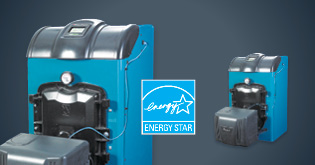
Let Meenan help you manage your heating oil costs this winter.
 15 Steps to Help Manager Your Oil Heat Bill
this Winter
15 Steps to Help Manager Your Oil Heat Bill
this Winter
Energy costs are on everyone's mind this winter. That's why we want to share the following steps and important information from our colleagues at the Energy Communications Council (ECC) to help you save energy, money, and the environment.
15 Steps for a Leaner, Greener & Easier Way to Manage Your Oil Heat Bill this Winter
Oil heat consumers can save on winter heating costs by tuning up their heating oil systems now, enrolling in a budget payment plan with automatic delivery from their heating oil supplier, as well as taking other simple steps to conserve energy.
Today’s oil furnaces are highly efficient, and according to the heating oil industry’s Energy Communications Council (ECC), an annual tune-up keeps existing equipment functioning at top performance.
 The U.S. Department of Energy maintains that properly serviced
boilers and furnaces will burn less fuel, thus reducing heating costs by up to 10 percent. Priced relatively low, the expense of a system tune-up can be more than recovered over the course of a typical winter, which makes regular maintenance a good
return on investment.
The U.S. Department of Energy maintains that properly serviced
boilers and furnaces will burn less fuel, thus reducing heating costs by up to 10 percent. Priced relatively low, the expense of a system tune-up can be more than recovered over the course of a typical winter, which makes regular maintenance a good
return on investment.
“Tuning up their heating system before the winter arrives is a great way for consumers to lower their heating costs, conserve energy, and help the environment,” said ECC Spokesman Kevin Rooney. “Just as a failure to perform regular maintenance on the family car lowers miles per gallon (MPG) and uses more gasoline. The same theory also applies to the family’s heating system.”
Regular tune-ups are not the only way homeowners can save money this winter. Wrapping pipes with proper insulation to prevent both heat loss and freezing, eliminating gaps around windows and doors with caulking, and replacing your manual thermostat with a programmable model are also among the practical steps that home and business owners can take to save energy and lower their bills.
 Homeowners should also carefully consider replacing heating
oil systems that are more than 20 years old. This investment can lower heating bills for years to come, and depending on the system, pay for itself in just a few years. The newest systems have come a very long way in terms of fuel conservation, so
homeowners can save money and shrink their carbon footprint as well.
Homeowners should also carefully consider replacing heating
oil systems that are more than 20 years old. This investment can lower heating bills for years to come, and depending on the system, pay for itself in just a few years. The newest systems have come a very long way in terms of fuel conservation, so
homeowners can save money and shrink their carbon footprint as well.
In addition to the ease of automatic delivery based on usage, consumers should also consider the financial benefits of a budget payment plan for their energy purchases, which spreads fuel oil costs across twelve months, as opposed to higher bills during
only the winter heating months. Budget plans make it possible for a customer to anticipate their monthly bills and budget accordingly. “Many oil heat consumers across the country use budget billing because they like the convenience and certainty
of having one heating expense figure to plug into their monthly home or business budget,” Rooney said.
HEAT SAVING TIPS: EASY DOs
- Get a heating system tune-up — it will ensure you get the maximum performance out of every drop of heating oil burned.
- Open shades and drapes when the sun is out to help warm your home. Close them when the sun goes down to reduce heat loss through drafty windows.
- Turn down the thermostat at night and when you are away from home; even slightly lowering your thermostat during the day may save you up to two percent on your heating bill.
- Insulate pipes to guard against heat loss and to prevent them from freezing.
- Stop heat loss by eliminating any gaps between your door and threshold. Use a seal that can be attached to the bottom of the door – it should brush up against the threshold to fill any gap.
- Caulk or re-caulk exterior spaces between the windows and walls of your home.
- Close your kitchen vent, fireplace damper, and closet doors, and remove, cover or close air conditioning units and vents when not in use.
- Do not place furniture in front of radiators; it will block heat from circulating.
HEAT SAVING TIPS: SHOULD DOs
- Consider replacing heating systems that are more than 20 years old. Modern versions can cut heating costs by 15 to 25 percent.
- Talk to your heating fuel supplier about installing a programmable thermostat; it will pay for itself through lower energy costs in about a year.
- Make sure you have good insulation in exterior walls, ceilings with cold spaces above, and floors with cold spaces below.
- Install and close storm windows. Consider new glass designed to decrease radiant heat loss without lowering visibility. A lower cost option is sealing windows with a window insulator kit, which can be found at your local hardware store.
HEAT SAVING TIPS: “GREEN DOs”
- Ask your local heating oil dealer about Bioheat®, a cleaner burning, renewable product that can be blended seamlessly with the heating oil you already use. It lowers emissions.
- In states where ultra-low sulfur heating oil is sold, biofuels can be blended creating a fuel suitable for burning in the world’s most efficient heating equipment.
- Consider having a solar water heating component installed. This small, easily installed system is virtually maintenance free and heats the water your family uses on a daily basis, using the free heat from the sun.
Click here for more information on practical energy saving tips
For more heating oil industry and energy savings information, visit this link:
Source: The ECC is comprised of the New England Fuel Institute, the Delaware Valley Fuel Dealers’ Association, the Empire State Petroleum Association, the Massachusetts Oilheat Council, Oil Heat Comfort



.jpg?sfvrsn=59b4717f_1)
.jpg?sfvrsn=38eb02bb_5)